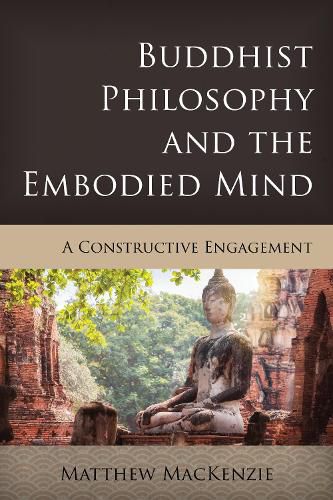Readings Newsletter
Become a Readings Member to make your shopping experience even easier.
Sign in or sign up for free!
You’re not far away from qualifying for FREE standard shipping within Australia
You’ve qualified for FREE standard shipping within Australia
The cart is loading…






In the last 30 years, embodied, embedded, enactive, and extended (4E) accounts of mind and experience have flourished. A more cosmopolitan and pluralistic approach to the philosophy of mind has also emerged, drawing on analytic, phenomenological, pragmatist, and non-Western sources and traditions. This is the first book to fully engages the 4E approach and Buddhist philosophy, drawing on and integrating the intersection of enactivism and Buddhist thought.
This book deepens and extends the dialogue between Buddhist philosophy and 4E philosophy of mind and phenomenology. It engages with core issues in the philosophy of mind broadly construed in and through the dialogue between Buddhism and enactivism. Indian philosophers developed and defended philosophically sophisticated and phenomenologically rich accounts of mind, self, cognition, perception, embodiment, and more. As a work of cross-cultural philosophy, the book investigates the nature of mind and experience in dialogue with Indian and Western thinkers. On the basis of this cross-traditional dialogue, the book articulates and defends a dynamic, non-substantialist, and embodied account of experience, subjectivity, and self.
$9.00 standard shipping within Australia
FREE standard shipping within Australia for orders over $100.00
Express & International shipping calculated at checkout
In the last 30 years, embodied, embedded, enactive, and extended (4E) accounts of mind and experience have flourished. A more cosmopolitan and pluralistic approach to the philosophy of mind has also emerged, drawing on analytic, phenomenological, pragmatist, and non-Western sources and traditions. This is the first book to fully engages the 4E approach and Buddhist philosophy, drawing on and integrating the intersection of enactivism and Buddhist thought.
This book deepens and extends the dialogue between Buddhist philosophy and 4E philosophy of mind and phenomenology. It engages with core issues in the philosophy of mind broadly construed in and through the dialogue between Buddhism and enactivism. Indian philosophers developed and defended philosophically sophisticated and phenomenologically rich accounts of mind, self, cognition, perception, embodiment, and more. As a work of cross-cultural philosophy, the book investigates the nature of mind and experience in dialogue with Indian and Western thinkers. On the basis of this cross-traditional dialogue, the book articulates and defends a dynamic, non-substantialist, and embodied account of experience, subjectivity, and self.